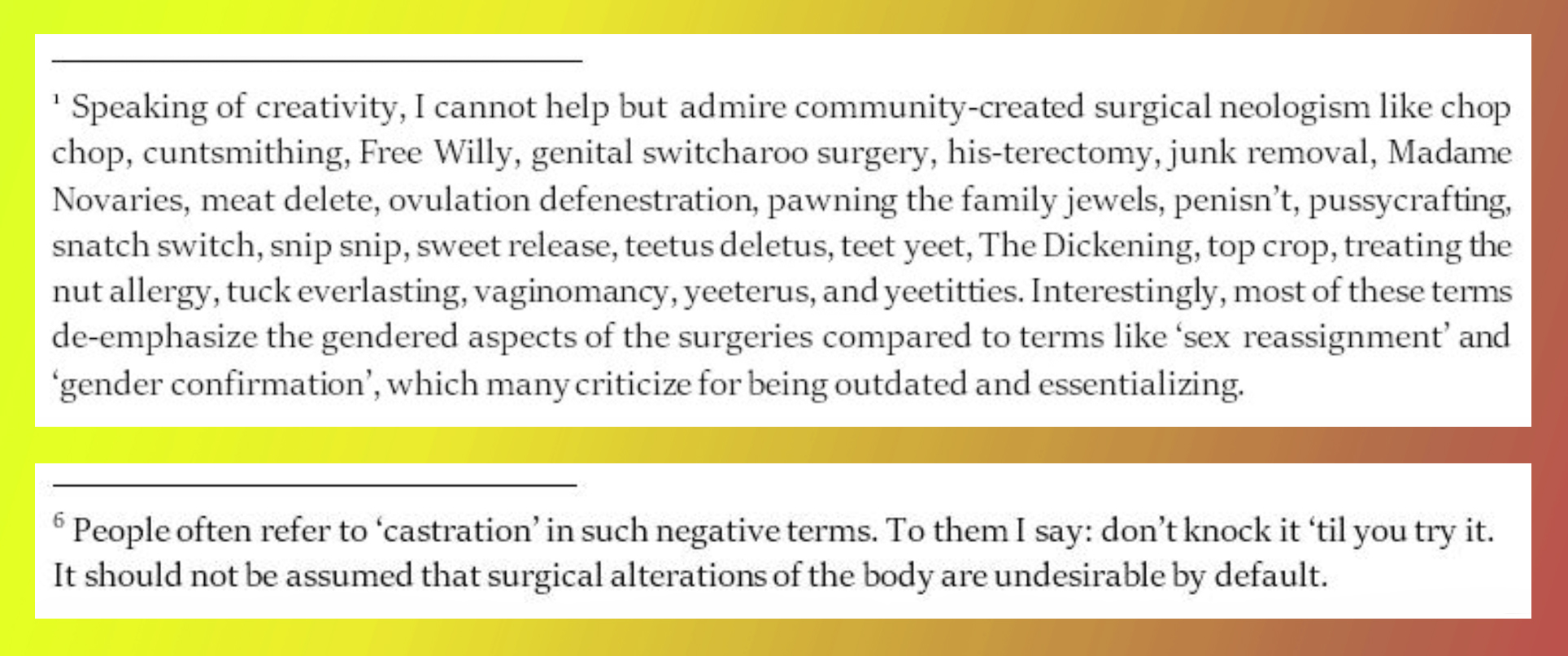The Appropriateness of Appropriateness
A journal’s editorial team conditioned the acceptance of an article on the removal of two footnotes they said were “distracting,” its author reports. Distracting how? The author thinks the editors judged the footnotes to be salacious, and thus inappropriate for the journal, though it’s not clear that was their reasoning.

Among the questions the episode raises are: How do norms of appropriateness function in editorial judgments? How ought they?
The journal in this case is Mind, the author is Florence Ashley (University of Alberta), and their article, recently published—sans the footnotes in question—is “What Is It Like to Have a Gender Identity?” Here’s an excerpt from the abstract:
By attending to how people speak about their gender, we can find diverse answers to the question of what it is like to have a gender identity. To some, it is little more than having a body whereas others may report it as more attitudinal or dispositional—seemingly contradictory views. In this paper, I seek to reconcile these disparate answers by developing a theory of how individual gender identity comes about.
And here are the footnotes that, Ashley reports, the editors insisted be removed in order for the paper to be accepted (skip if you’re offended by vulgarity, mentions of surgery, references to genitalia, or puns):

Ashley said in a message that the footnotes were questioned during the peer review stage, adding:
I wrote a substantive defense in my response to reviewers. Eventually, they made it clear that the only thing standing in the way of official acceptance was removing the footnotes and that they wouldn’t publish the paper with them. The official reason was that they were distracting, but it is difficult for me to see it as anything other than prudishness.
Ashley also expressed a concern that there’s a risk of “stifling” discourse when “what is considered improper is one of the better ways to make a point, which may happen more in subfields relating to gender and sexuality.”
According to Mind‘s editors, Lucy O’Brien (UCL) and Adrian Moore (Oxford), the editorial team has a policy of not publicly commenting on its editorial work in relation to specific papers. It’s a reasonable policy, but what it means is that we do not have their side of the story. So it’s quite possible that salaciousness was not the issue at all. Maybe they were concerned that the lightheartedness of the notes was disrespectful for such a sensitive topic. Maybe they deemed the notes’ relevance to the paper’s central argument too tenuous. Maybe they hate puns. While we may be Mind readers, we are not mind readers, so the bottom line is that we don’t know for sure.
In any event, the point of this post is not to condemn the editors. Even if we assume Ashley is correct in their interpretation of the decision, an editor making judgments in accordance with a sense of appropriateness that differs from the author’s is not necessarily objectionable. Were an editor to, for example, insist as a condition for an article’s publication that an author remove from it a racist joke possibly relevant to but unnecessary for the author’s argument, most of us would think the editor is acting well within their rights.
Better than condemning anyone involved in this would be to getting a grasp of the variety of cases in which something like a moralistic or aesthetic sense of “what is appropriate for this journal” is plausibly the explanation for suggested or required revisions of a manuscript. Does it happen a lot or a little? Is it more or less common in certain subfields of philosophy or on certain topics? Has it happened to you?
Then we might be in a better position to assess under what conditions, and to what extent, such editorial pressure is (or is not)… appropriate.
The post The Appropriateness of Appropriateness first appeared on Daily Nous.